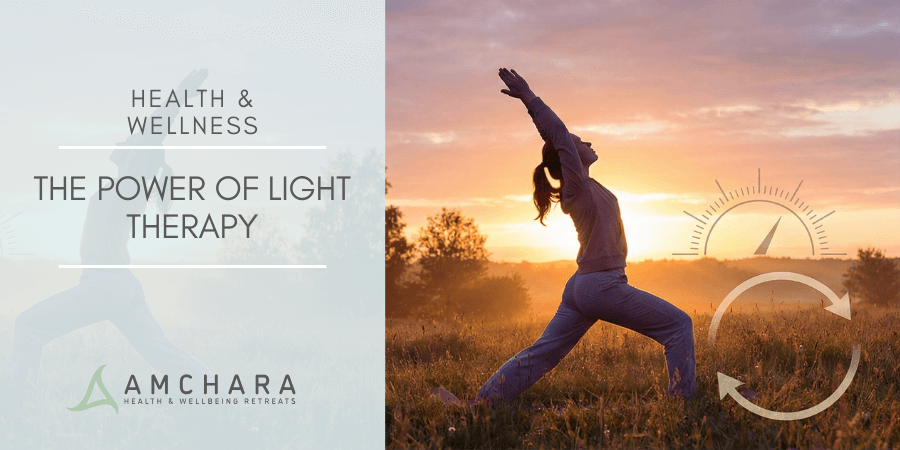Most discussions about stress focus on what to stop – how to reduce stressors, or how to switch off.
But what if a more useful lens is what rhythm is being disrupted? Stress throws your natural cycles off: circadian rhythm (sleep/wake), digestive rhythm (feeding/fasting), and nervous-system rhythm (rest vs action).
We always take an evidence-based approach, orientated towards a holistic and Personalised Health approach, and aim to provide you with actionable knowledge and tips to help you on your journey to optimal health.
Let’s take a look at your body’s rhythm connection, the disruptive impact of stress, and practical steps to help you rebalance and reverse rhythm disruption.
The rhythm connection
Your body runs on an intricate network of internal clocks. Perhaps the most well-known is the circadian rhythm – the 24-hour cycle that governs your sleep–wake pattern, hormone release, digestion, energy, and even immune function. But your body doesn’t just have one internal clock; every organ and tissue has its own rhythm, designed to work in harmony with light, food intake, activity, and rest.
When these rhythms are in sync, your body hums along smoothly. Cortisol rises gently in the morning to help you wake, insulin sensitivity peaks during daylight hours to manage energy efficiently, and melatonin surges at night to support deep sleep and cellular repair.
The disruptive impact of stress
Chronic stress, however, disrupts these rhythms. Factors such as constant stimulation, artificial light, erratic eating times, 24/7/ work culture, and emotional strain confuse your internal timekeepers.
The brain’s command centre – the hypothalamus – struggles to keep its balance, leading to HPA axis dysregulation (the hormonal feedback loop that controls stress response). Over time, this can result in symptoms such as fatigue, sleep disturbances, mood shifts, weight changes, and increased inflammation.
Studies show that circadian misalignment can raise the risk of stress-related disorders, from depression and anxiety to metabolic and cardiovascular disease. The body essentially loses its sense of direction in terms of when to rest, digest, or repair.
When your rhythms are misaligned, your body becomes less efficient: cortisol can spike at odd times, digestion may slow when it should move, effective rest and sleep can be challenging to achieve. In functional-medicine language: the input rhythms (sleep, food, movement, connection) and the output rhythms (hormones, immune signalling, renewal) fall out of sync.
How to rebalance and reverse rhythm disruption
By restoring rhythm, you give your body the context to rest, repair, and reset.
Here are key areas you can focus on to reverse rhythm disruption:
- Light and dark exposure: Morning natural light and reduced evening screen time help reset your master clock. Exposure to daylight within an hour of waking is a simple but powerful way to lower cortisol later in the day.
- Consistent meal timing: Eat within a 10–12-hour daytime window. Eat your last meal 2-3 hours before bed, and if possible, fast overnight for at least 12 hours. Giving your body’s digestive system rest supports other systems’ rhythms.
- Movement rhythm: Gentle restorative movement energises like yoga and stretching, alternated with higher energy movement like swimming, cycling or walking can help regulate your nervous system.
- Sleep regularity: Going to bed and waking at the same time daily stabilises the HPA axis and supports hormone balance. Set a consistent lights-out and wake up time. Treat your bedroom as sacred: keep it dark, cool, and no blue light for one hour before bed.
- Stress regulation tools: Mindfulness, breath work, spending time in nature, and gratitude practices modulate the vagus nerve, helping the nervous system shift from “fight or flight” to “rest and digest”.
- Nourish for rhythm – Eat regularly, include high-quality fats (think olive oil, oily fish, nuts), fibre-rich vegetables and powerful anti-inflammatory herbs like sage and rosemary. Avoid large sugary spikes or erratic meals that disturb rhythm.
- Micro-rest rituals – Build in 10-minute “rest windows” where you disconnect (devices off, calm time in a restful environment) to enable your nervous system to shift towards repair.
How a retreat deepens the reset
Stepping away from everyday demands amplifies the rhythm-restoration work. On retreat at Amchara you can benefit from:
- Environment shift: absence of usual stress triggers (emails, traffic, deadlines), and our supportive environment, enables your system to “unwind”.
- Guided immersion: workshops on sleep, stress physiology, nutrition, and nervous-system regulation help you understand why you feel what you feel.
- Structured rest: set meal or juice, and movement times, time in nature, hammock moments, spa or sauna time – all to reinforce your natural rhythms.
Takeaway
Rhythm restoration as foundational to healing. It’s not about perfection – it’s about consistency and awareness. By restoring alignment between your internal clock and your external world, you reduce the physiological “noise” that keeps the body on high alert.
When your rhythms return to flow, cortisol normalises, energy steadies, sleep deepens, and mood stabilises.
When you respond to stress in a holistic, rhythm-aware, personalised way, you don’t just reduce it. You invite wellbeing – deeper sleep, calmer nervous system, a clearer mind, and stronger resilience.
If you would like support on your journey to optimise your health, our retreats are designed to help you detoxify both physically and mentally.
At Amchara, we believe the path to wellbeing begins by recognising that your body has wisdom. Stress is a signal, not just a symptom. When we respond to that signal with personalised, holistic support, we not only better manage stress – we build resilience into our systems.
On an Amchara health retreat you will be immersed in a supportive and nurturing environment that enables you to switch off, relax and kickstart your health journey.
Tailored advice from our Personalised Health practitioners will take into account your individual health circumstances and goals, and our physical activities and educational talks can empower you to ‘Change for Good’.




